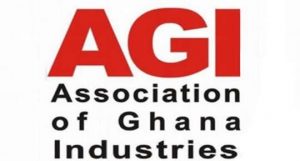The Development Bank Ghana (DBG) has signed on to the United Nations Global Compact as part of the Bank’s efforts to strengthen its commitments and operations with a sustainable business and greater governance framework.
The United Nations Global Compact is a United Nations pact which enjoins its signatories, mostly businesses and firms worldwide to adopt sustainable and socially responsible policies and to report on their implementation.
The Compact has a ten-principle based framework for businesses. This enables them to operate in ways which meet fundamental responsibilities in the areas of human rights, labour, environment and anti-corruption which form the pillars of the UN Global Compact.
By incorporating the Ten Principles of the UN Global Compact into strategies, policies and procedures, and establishing a culture of integrity, companies are not only upholding their basic responsibilities to people and planet, but also setting the stage for long-term success.
By becoming a signatory to the United Nations Global Compact, DBG is thus reinforcing its commitment to uphold and protect human rights, labour, environment, and anti-corruption principles through its business practices.
Commenting on DBG joining the UN Global Compact, the Chief Executive Officer of DBG, Mr. K. Duker, said, “DBG is pleased to join the many organisations all over the world who are signatories to the UN Global Compact and who believe as we do, that ethical business conduct is an important component that enables companies to foster sustainable development.”
He added that the UN Global Compact “provides DBG with a universal language for corporate responsibility and a framework we can use to guide us in our business as we forge ahead. The UN Global Compact positions us to effectively assess, define, implement, measure and communicate our sustainability strategy goals.”
He noted that in pursuance of the DBG’s key pillar to foster strong partnerships to finance economic growth, create jobs and build capacity for SMEs towards achieving sustainable growth, joining the UN Global Compact will help the bank strengthen its ability to serve as a catalyst for responsible business practices.
“We support public accountability and transparency in our operations and commit to reporting our progress to the UN Global Compact, in our annual Communication on Progress (CoP) report as demanded of us as a signatory,” he said.
Also speaking at the signing ceremony, the Board Chairman of the UN Global Compact Network in Ghana, Sulemanu Koney, said by joining the UN Global Compact Network, the DBG will be provided the platform “for your brand to lead and shape the corporate sustainability agenda in Ghana for the betterment of the financing industry and affiliate sectors.”
“Given the bank’s vision to support the nation’s development priorities, and in particular provide financial assistance to SMEs the bank’s commitment to serve this target market under these principles will ensure that the bank meets its goals while communicating its progress in ethical transparency to our stakeholders,” he added.
The Executive Director of the UN Global Compact Network in Ghana, Tolu Kweku Lacroix, expressed the institution’s commitment to support the DBG achieve its goals.
“As a local network in Ghana, we will support your journey and assist you to meet your goals. Our programmes on SDG ambitions, sustainable finance…and decent work and economic growth and others will provide the framework to begin that journey.
“We will also work with you in partnerships that seek to strengthen SMEs and encourage them to adopt good business practices alongside these ten principles. As part of our network, you’ll have the opportunity with other member organisations who have signed with the UN Global Compact from across initiative for greater impact on the ten principles,” he said.
The United Nations Global Compact is the world’s largest corporate sustainability initiative with 13,000 corporate participants and other stakeholders over 170 countries with the objectives of mainstreaming the ten principles in business activities around the world and to catalyse actions in support of broader United Nations goals such as the Sustainable Development Goals.






